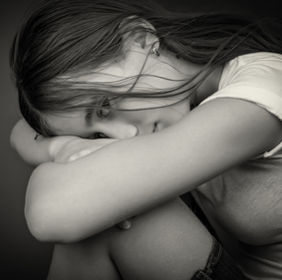At Frenchtown Psychotherapy our goal is to provide the support you need for effective, meaningful behavioral health management. You will receive personal care to help navigate your path to a more balanced life.
Our Services
Dr. Charwin offers comprehensive consultation, evaluation, and treatment services to adolescents, adults, couples, and families in a relaxing and supportive atmosphere.
Dr. Charwin specializes in offering support for many mental health needs including:
- Depression
- Anxiety and Phobias
- Attention Deficit Hyperactivity Disorder
- Bipolar Disorder
- Obsessive-Compulsive Disorder
- Anger Management
- Couples/Relationship Difficulties
- Stress Managment
- Loss, Grief, and Bereavement Counseling
- Parenting Skills
- Behavior Management
What will a therapy session be like?
Therapy sessions are unique and designed to meet the needs and goals of each individual. At Frenchtown Psychotherapy, our sessions focus on issues and concerns that occur in your life that have not been effective and you wish you could change. Typically, we hold sessions weekly, with each session lasting around forty-five minutes. Therapy is solution-focused and may be short-term, if the focus is on a specific issue, or longer-term, if there is a need to address more complex issues and/or ongoing personal growth.
Clients who take part in therapy are partners down a path toward more effective thinking, actions, and behaviors. To that end, individuals are often asked to take certain actions outside of the therapy sessions so that they may practice their new skills “in-vivo” or in real life. The goal is to make the client feel comfortable and supported as the process moves forward. The information you take away from each session can be integrated into daily activities so that growth in the targeted areas can be observed. Therapy is most effective when the client is an active participant, both during and between the sessions.
Congratulations on your interest in making a commitment toward taking responsibility towards self-change, self-awareness and a more fulfilled life.
Common Symptoms
Click on each item to see the symptoms
Depression
According to the National Institute of Mental Health, symptoms of depression may include the following:
- Difficulty concentrating, remembering details, and making decisions
- Fatigue and decreased energy
- Feelings of guilt, worthlessness, and/or helplessness
- Feelings of hopelessness and/or pessimism
- Insomnia, early-morning wakefulness, or excessive sleeping
- Irritability, restlessness
- Loss of interest in activities or hobbies once pleasurable, including sex
- Overeating or appetite loss
- Persistent aches or pains, headaches, cramps, or digestive problems that do not ease even with treatment
- Persistent sad, anxious, or “empty” feelings
- Thoughts of suicide, suicide attempts
Bipolar Disorder
Common signs and symptoms of mania include:
- Feeling unusually “high” and optimistic OR extremely irritable
- Unrealistic, grandiose beliefs about one’s abilities or powers
- Sleeping very little, but feeling extremely energetic
- Talking so rapidly that others can’t keep up
- Racing thoughts; jumping quickly from one idea to the next
- Highly distractible, unable to concentrate
- Impaired judgment and impulsiveness
- Acting recklessly without thinking about the consequences
- Delusions and hallucinations (in severe cases)
Common symptoms of bipolar depression include:
- Feeling hopeless, sad, or empty.
- Irritability
- Inability to experience pleasure
- Fatigue or loss of energy
- Physical and mental sluggishness
- Appetite or weight changes
- Sleep problems
- Concentration and memory problems
- Feelings of worthlessness or guilt
- Thoughts of death or suicide
Anxiety and Phobias
- Excessive or irrational fear of a specific object or situation.
- Avoiding the object or situation or enduring it with great distress.
- Physical symptoms of anxiety or a panic attack, such as a pounding heart,nausea or diarrhea, sweating, trembling or shaking, numbness or tingling, problems with breathing (shortness of breath), feeling dizzy or lightheaded, feeling like you are choking.
- Anticipatory anxiety, which involves becoming nervous ahead of time about being in certain situations or coming into contact with the object of your phobia. (For example, a person with a fear of dogs may become anxious about going for a walk because he or she may see a dog along the way.)
Attention Deficit Hyperactivity Disorder
The three primary characteristics of ADD/ADHD are inattention, hyperactivity, and impulsivity. The signs and symptoms a child with attention deficit disorder has depends on which characteristics predominate.
Children with ADD/ADHD may be:
- Inattentive, but not hyperactive or impulsive.
- Hyperactive and impulsive, but able to pay attention.
- Inattentive, hyperactive, and impulsive (the most common form of ADD/ADHD).
Children who only have inattentive symptoms of ADD/ADHD are often overlooked, since they’re not disruptive. However, the symptoms of inattention have consequences: getting in hot water with parents and teachers for not following directions; underperforming in school; or clashing with other kids over not playing by the rules.
Source: helpguide.org
Obsessive Compulsive Disorder
Most people with obsessive-compulsive disorder (OCD) have both obsessions and compulsions, but some people experience just one or the other.
OCD signs and symptoms: Obsessive thoughts
Common obsessive thoughts in obsessive-compulsive disorder (OCD) include:
- Fear of being contaminated by germs or dirt or contaminating others.
- Fear of causing harm to yourself or others.
- Intrusive sexually explicit or violent thoughts and images.
- Excessive focus on religious or moral ideas.
- Fear of losing or not having things you might need.
- Order and symmetry: the idea that everything must line up “just right.”
- Superstitions; excessive attention to something considered lucky or unlucky.
OCD signs and symptoms: Compulsive behaviors
Common compulsive behaviors in obsessive-compulsive disorder (OCD) include:
- Excessive double-checking of things, such as locks, appliances, and switches.
- Repeatedly checking in on loved ones to make sure they’re safe.
- Counting, tapping, repeating certain words, or doing other senseless things to reduce anxiety.
- Spending a lot of time washing or cleaning.
- Ordering or arranging things “just so.”
- Praying excessively or engaging in rituals triggered by religious fear.
- Accumulating “junk” such as old newspapers or empty food containers.
Source: helpguide.org






